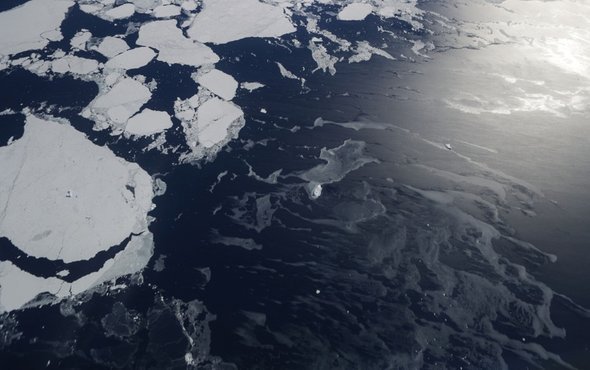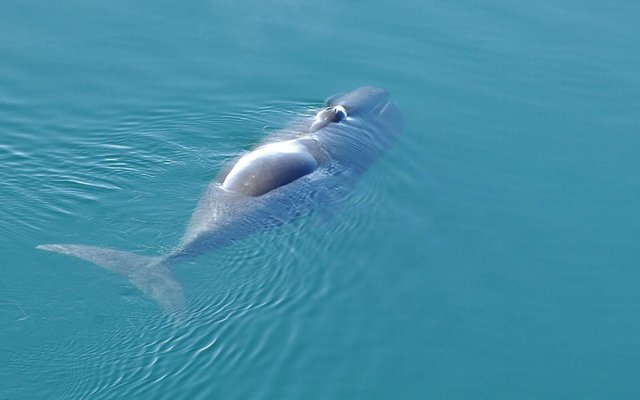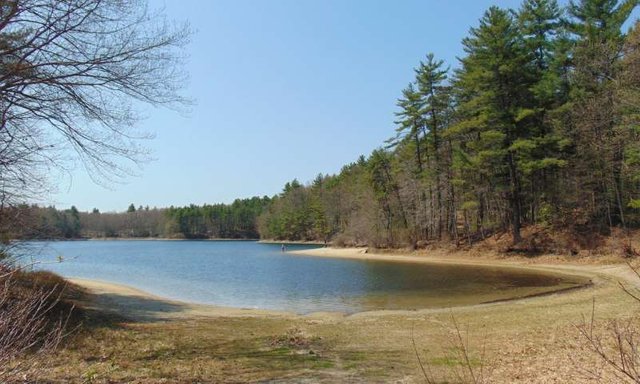Linked to a warming ocean, ice retreat was more rapid than even at the end of the last Ice Age
Linked to a warming ocean, ice retreat was more rapid than even at the end of the last Ice Age


Credit: Mario Tama Getty Images
By Chelsea Harvey, E&E News
An ambitious new mapping project has given scientists one of their most complete looks yet at the movement of glaciers all around Antarctica.
The key finding: Far more glaciers are losing ground than gaining ice.
The study fuels a growing concern among scientists about the factors affecting the Antarctic ice sheet—namely, that warm ocean waters are helping to melt glaciers and drive greater levels of ice loss, particularly in West Antarctica.
“The strong impact of ocean onto Antarctic ice sheet dynamics, or the knowledge that we have about it, is reinforced by our study,” said lead study author Hannes Konrad of the University of Leeds in an interview with E&E News.
The research, published Monday in the journal Nature Geoscience, focuses on Antarctica’s marine-terminating glaciers, or glaciers that back directly up to the ocean. These glaciers are typically all structured in a similar way.
The ice rests on top of the ground and remains connected to the bedrock up to a point known as the grounding line. At the grounding line, the ice detaches from the bedrock and juts out into the water as a kind of floating ledge, or ice shelf, which helps to stabilize the glacier and hold back the flow of ice behind it. Meanwhile, ocean water seeps beneath the ice shelf and washes up against the base of the glacier.
The position of the grounding line can tell scientists a lot about the stability of any given glacier and its potential to contribute to sea-level rise. If the ice at the bottom of a glacier melts, the point where it connects to the bedrock moves backward, farther inland, losing ice to the ocean in the process. As this happens, the floating ice shelf in front of it also lengthens and thins, increasing its chances of breaking and allowing even more ice to flow out from behind it.
Because of their immense potential to influence global sea levels—the entire Antarctic ice sheet contains enough ice to raise the ocean by about 200 feet—scientists have focused increasing attention on ice loss from Antarctic glaciers and the climate factors that may influence that process in the coming years. Many studies have focused on mapping ice loss from specific glaciers. But the new study takes a more holistic approach.
The researchers, including scientists from the University of Leeds and University College London, used satellite data to analyze changes in the surface elevation of glaciers all around the Antarctic coastline, from 2010 to 2016. These surface height data can help scientists pinpoint changes in the location of the grounding line.
They found that in seven years, the continent lost about 560 square miles total of grounded ice. Each year, about 80 more square miles of ice is detaching from the bedrock.
The research does suggest that some glaciers around the continent are actually gaining ground, likely thanks to an increase in snowfall on the continent, which eventually packs down and freezes into ice. But overall, the Antarctic grounding line has experienced a net retreat.
And in many places, it’s moving faster than the ice is thought to have retreated during the warming period at the end of the last ice age, around 20,000 years ago. At that time, scientists estimate, Antarctic glaciers retreated at a rate of around 25 meters, or 80 feet, per year. The new research suggests that nearly 11 percent of the glaciers around Antarctica as a whole are retreating at a faster pace today.
The retreat is especially severe in West Antarctica, widely acknowledged as the most vulnerable part of the continent and the region whose glaciers are losing the most ice. There, 22 percent of the grounding line is retreating faster than the benchmark 80 feet per year.
In contrast, just 2 percent of the entire Antarctic grounding line significantly advanced during the
study period.
Warm water invasion
The new study can’t speak to the exact mechanisms behind the glaciers’ behavior. But scientists increasingly attribute much of the observed grounding line retreat—particularly in West Antarctica—to the influence of warmer ocean water seeping beneath the ice shelves and lapping against the bases of glaciers, melting the ice from the bottom up.
“Our study does reinforce what we know about the ocean being able to have a strong impact on ice dynamics in Antarctica,” Konrad said.
The influence of climate change on this warm water invasion is an ongoing research focus among climate scientists and is still not completely understood. Global warming is also contributing to the rising ocean temperatures on the whole, but “the warming of the ocean alone is not sufficient to explain what we see,” said Eric Rignot, a glacier expert at the University of California, Irvine, in an emailed comment on the new study.
Ongoing changes in ocean circulation patterns, which are helping to drive warm water from other parts of the sea closer to the Antarctic continent, are also believed to be a major factor. Climate change is indeed expected to influence certain major ocean currents, in part by affecting the winds and other atmospheric patterns that help to drive the movement of the seas. But exactly how those processes will play out in the future remains a subject of ongoing study.
For now, the new research does help confirm “the fact the Southern Ocean is a major influence on the evolution of Antarctica,” Rignot noted, even if the exact mechanisms driving that influence are still not well understood.
For now, the findings can’t tell scientists exactly how much sea-level rise is corresponding with the observed changes, although a net retreat of the grounding line suggests that there’s more reason for worry than not. Still, Konrad notes, the study only spans a seven-year period, and some of the trends that it says are occurring now could change in the future.
At Pine Island Glacier, for instance—one of West Antarctica’s largest glaciers, and previously one of its fastest retreating spots—the research suggests that the grounding line has recently stabilized. That’s after a decadelong period, between 1992 and 2011, when the glacier was migrating inland at a clip of about 3,200 feet per year.
Retreat at Thwaites Glacier, on the other hand—another of West Antarctica’s monster glaciers, and currently the subject of greatest concern among Antarctic ice experts—has slightly increased in the last few years, from about 1,100 feet to nearly 1,400 feet per year. The news comes as U.S. and U.K. scientists are in the process of teaming up for an ambitious joint research mission focusing on the processes shaping Thwaites and its potential contributions to sea-level rise.
Both Pine Island and Thwaites—along with the dozens of other glacier basins included in the new study—will benefit from continued monitoring to determine whether the trends observed now hold true in the future.
“I think it might actually be worth building a continuous platform for monitoring grounding line retreat rates based on our approach,” Konrad said. “I think continuous monitoring would make a lot of sense.”
Reprinted from Climatewire with permission from E&E News. E&E provides daily coverage of essential energy and environmental news at www.eenews.net.
Source: https://www.scientificamerican.com/article/antarctic-glaciers-lost-stunning-amount-of-ground-in-recent-years/
This post as well as its images are released under a CC BY 4.0 License
Don`t miss the top 10 best posts:
 The bowhead whales, these incredible singers
The bowhead whales, these incredible singers Vegan eggplant rolls
Vegan eggplant rolls Vegan Lentil salad for the summer
Vegan Lentil salad for the summer Climate change and recreational activities at Walden Pond have altered its ecosystem April 4, 2018, Public Library of Science
Climate change and recreational activities at Walden Pond have altered its ecosystem April 4, 2018, Public Library of Science

This post as well as its images are released under a CC BY 4.0 License.
World of Photography
>Visit the website<
You have earned 5.95 XP for sharing your photo!
Daily photos: 2/2
Daily comments: 0/5
Multiplier: 1.19
Server time: 12:51:01
Total XP: 166.90/200.00
Total Photos: 30
Total comments: 0
Total contest wins: 0
Follow: @photocontests
Join the Discord channel: click!
Play and win SBD: @fairlotto
Daily Steem Statistics: @dailysteemreport
Learn how to program Steem-Python applications: @steempytutorials
Developed and sponsored by: @juliank